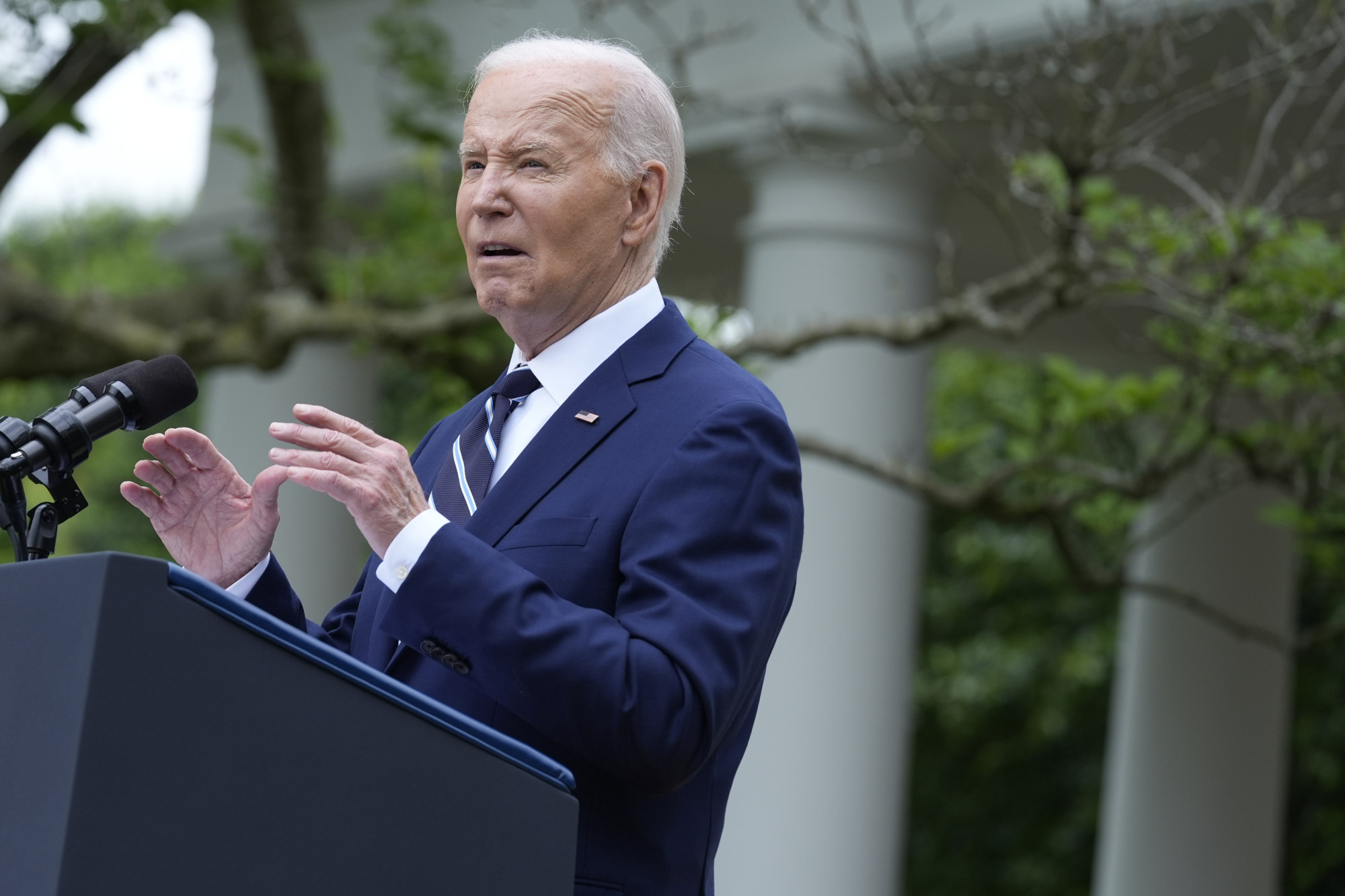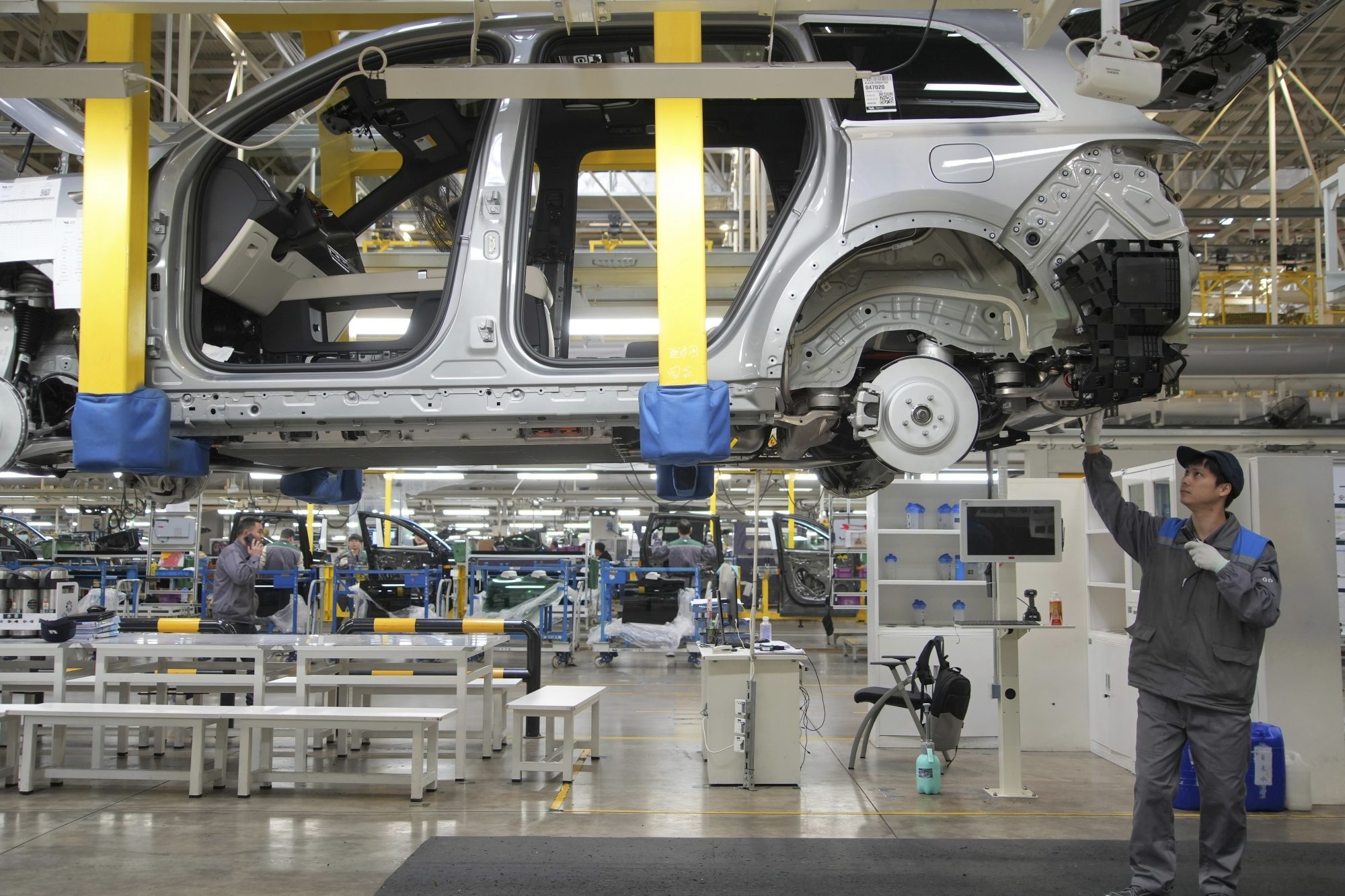US President Joe Biden accused Beijing on Tuesday of sticking with unfair trade practices that had prompted his predecessor Donald Trump to launch a trade war against China – and asserted that the former president failed to follow through on promises to fix the problem.
Speaking from the White House after announcing new tariffs he has ordered on Chinese electric vehicles, semiconductors, aluminium, steel and other imported products, Biden vowed that “the future of electric vehicles will be made in America by union workers”.
“For years the Chinese government has poured state money to Chinese companies across a whole range of industries … pushing Chinese companies produce far more than the rest of the world can absorb, then dumping the excess products onto the market at unfairly low prices driving other manufacturers around the world out of business,” he said.
Under the plan, following a public comment period to be announced by US Trade Representative Katherine Tai’s office next week, tariffs would rise to 100 per cent from 27.5 per cent on Chinese EVs and to 50 per cent on semiconductors and solar cells produced in the country. Tariffs on lithium-ion vehicle batteries and battery parts would rise to 25 per cent.
Biden’s move is the latest chapter in a trade war started by Trump in 2018 to address restrictions on access to China’s market, including policies that force foreign companies operating in the country to transfer technology to domestic firms.
Both men, who are running against each other this year in a rematch of the 2020 presidential election, have made talking tough on China a feature of their campaigns.
In his speech from the White House, Biden took aim at Trump’s efforts to counter China nearly as much as he blamed Beijing for the loss of American manufacturing jobs.
“My predecessor promised to increase American exports and boost manufacturing, but he did neither,” Biden said. “He signed a trade deal with China. They’re supposed to buy $200 billion more in American goods. Instead, China’s imports from America barely budged.”

Biden was referring to a phase-one deal that Trump brokered with China in 2019, and signed in January 2020, ending threatened tariffs on around US$155 billion worth of Chinese imports that were set to take effect at the end of that year, and halving tariffs to 7.5 per cent on another US$120 billion in goods. But the deal kept in place the 25 per cent import taxes on US$250 billion worth of Chinese products.
In exchange, China pledged to buy, over two years, at least US$200 billion more in American goods and services than it did in 2017, including about US$40 billion in agricultural goods.
US exports to China rose from US$106 billion in 2019 to US$125 billion in 2020. The exports have ranged between US$148 billion and US$154 billion since.
The US imported US$504 billion worth of Chinese goods in 2021 and US$433 billion in 2020, compared with US$449 billion in 2019, according to US Census data.
These imports rose again to US$536 billion in 2022, before dropping to US$427 billion last year.
“And now,” Biden continued, “Trump and ‘MAGA Republicans’ want across-the-board tariffs on all imports from all countries if reelected.
“Well, that would drive up costs for families on an average of US$1,500 per year each year.”
Underscoring his political message, Biden was introduced by Jesse Gary, the chief executive of Century Aluminium, which has facilities in the US states of Kentucky and South Carolina, and Roxanne Brown, international vice-president at large for the United Steelworkers union.
The Biden administration’s top economic officials, including Commerce Secretary Gina Raimondo and Treasury Secretary Janet Yellen, had been signalling the tariff action for weeks, insisting that the coming measures would be as targeted as possible and tailored to avoid a broader decoupling of the two economies.
Tai cited the need “to encourage further elimination of the PRC’s technology transfer-related acts, policies and practices” in her announcement about the new tariffs earlier on Tuesday.

China’s Ministry of Commerce said the proposed tariff hikes violate Biden’s commitments to avoid decoupling from China and “not to seek to suppress and contain China’s development”.
Beijing’s Ministry of Foreign Affairs spokesman Wang Wenbin said that China would take “full necessary measures to safeguard its legitimate rights and interests”.

